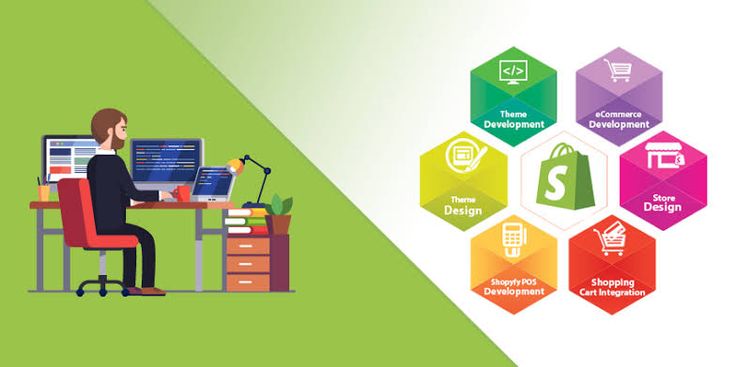1. Introduction
As the eCommerce world continues to evolve rapidly in 2025, choosing the right shopify website design company has never been more crucial. With customer expectations rising and competition becoming fiercer, a well-designed Shopify store can be the difference between a thriving business and one that struggles.
While Shopify itself makes launching a store relatively easy, crafting a compelling, high-performing storefront that drives conversions is a specialized task. That’s where experienced Shopify design professionals come in.
2. Understand Their Design Philosophy
Not all design companies are created equal. Some focus on aesthetics, while others emphasize functionality and user experience. When evaluating a Shopify website design company, ask about their design philosophy.
Do they prioritize clean layouts, mobile responsiveness, and speed? Or are they more focused on flashy graphics? Ideally, you want a partner who balances visual appeal with performance and usability.
3. Portfolio and Case Studies Matter
A portfolio is the clearest window into a company’s capabilities. Before making a decision, review their previous Shopify projects.
Look for diversity in design styles, industries served, and types of customizations implemented. Case studies are even better—they showcase real-world results, such as improved conversion rates, increased traffic, or user engagement metrics.
4. Check for Platform-Specific Expertise
Shopify isn’t just another CMS—it has its own logic, liquid templating language, and unique best practices. A generic web designer may not understand how to optimize within Shopify’s ecosystem.
A professional Shopify website design company will have deep platform expertise. Ask about their experience with Shopify themes, custom apps, Shopify Plus, and integrations with third-party tools like Klaviyo, ReCharge, or Yotpo.
5. User Experience (UX) Comes First
Design is not just about how things look—it’s about how things work. A strong Shopify site should offer seamless navigation, intuitive user flows, and clear calls to action.
Make sure your potential design partner conducts user research or usability testing. Companies that understand UX principles will craft experiences that guide users naturally toward purchase decisions.
6. SEO and Performance Optimization
A beautiful website is meaningless if no one can find it. That’s why SEO should be part of the design conversation from day one.
Ask the Shopify website design company how they handle on-page SEO—such as image optimization, meta tag structure, mobile performance, and page speed. A good company will ensure your design helps your visibility, not hurts it.
7. Customization vs. Template Use
Some companies simply reskin templates. Others build fully custom themes based on your brand’s identity and goals.
Depending on your budget and business needs, both approaches can work. However, transparency is key. Be sure to clarify whether the design will be truly custom or just a modified off-the-shelf template—and what that means for flexibility and scalability.
8. Communication and Project Management
Even the best designers can’t read minds. A smooth project depends on strong communication.
Ask how the company handles project timelines, client feedback, and revisions. Do they use project management tools like Trello, Asana, or Basecamp? Do they provide a dedicated account manager? A streamlined workflow makes the experience less stressful and more productive.
9. Post-Launch Support and Training
Your Shopify store doesn’t end at launch. You’ll likely need ongoing tweaks, updates, or training for your in-house team.
Choose a Shopify website design company that offers support packages, maintenance options, and training sessions. Bonus points if they help you understand analytics, app management, and content updates so you can maintain autonomy.
10. Budget Transparency and Value
Pricing can vary widely among design companies. Some charge hourly, others work on flat-fee projects. Make sure you understand what’s included in their quote.
More importantly, focus on value. An expensive agency that delivers a high-converting site may offer better ROI than a cheap one that cuts corners. Always align your budget with your long-term business goals.
11. Reviews and Reputation
In 2025, online reviews are your best friend. Check Clutch, Trustpilot, Google, and even Shopify Experts listings.
Also, ask for client references. A trustworthy Shopify website design company will be happy to connect you with past clients who can speak about their experience.
12. Future-Proofing Your Store
Your Shopify store should grow with your business. That means choosing a design company that builds scalable, future-ready infrastructure.
Whether you plan to add international stores, launch subscriptions, or implement headless commerce, your partner should have the experience to adapt your store to what’s next.
Final Thoughts
Hiring a Shopify website design company in 2025 isn’t just a technical decision—it’s a strategic move that directly impacts your growth. The right design partner will do more than make your site look good. They’ll elevate your brand, create a frictionless user experience, and turn visitors into loyal customers.As you build your Shopify presence, remember—it’s not just about design. It’s about using the right tools, integrations, and systems to support your store’s long-term performance. Pairing a great design company with powerful retail software—like those featured in our blog “10 best software for retailers to Thrive in the E-commerce Industry”—can set you up for real, scalable success. So, do your research. Ask smart questions. Look beyond quick wins. Your Shopify store is more than a website—it’s your digital storefront, your brand’s home base, and often your first impression. Invest wisely. Build for the future.
